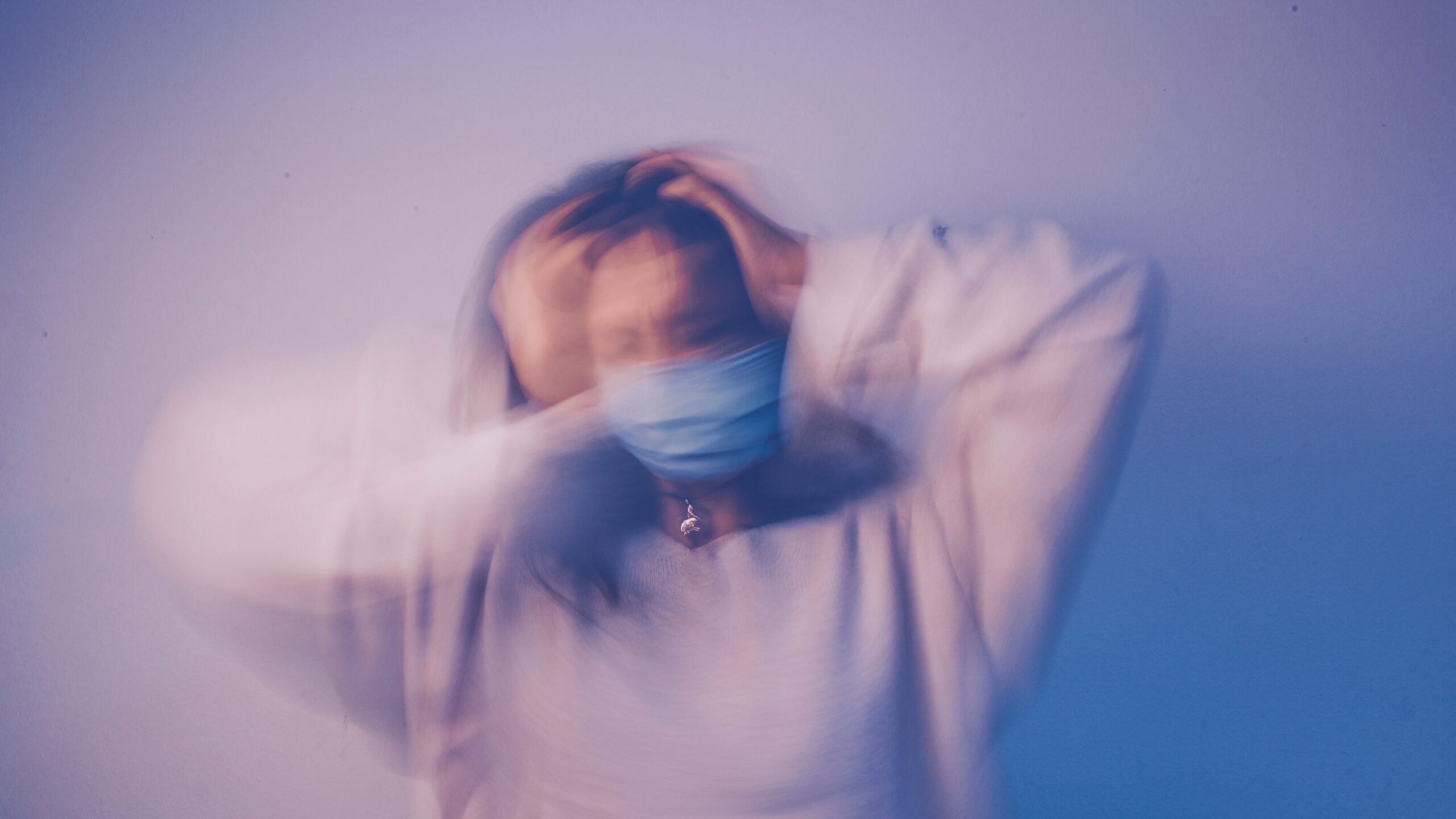Aug 8, 2023 |

In the fast-paced and highly competitive environment of Singapore, anxiety has become a prevalent concern for many individuals. However, incorporating mindfulness activities into daily routines can offer effective tools for managing anxiety and promoting overall well-being. By cultivating present-moment awareness and engaging in mindful practices, Singaporeans can find relief from anxiety while navigating the demands of modern life.
The Benefits of Mindfulness for Reducing Anxiety:
1. Stress Reduction:
Mindfulness helps individuals become more aware of their thoughts and emotions, allowing them to respond to stressors with greater clarity and composure. Studies have shown that regular mindfulness practice can reduce anxiety levels and promote a sense of calm and relaxation. By incorporating mindfulness activities into their daily lives, Singaporeans can effectively manage anxiety attacks and experience a greater sense of peace.
2. Improved Focus and Concentration:
Anxiety often leads to scattered thoughts and difficulty concentrating. Mindfulness activities, such as focused breathing or meditation, train the mind to stay present and enhance attention span, leading to improved focus and productivity. By practicing mindfulness before sleep, individuals can reduce anxiety and promote better quality sleep, waking up refreshed and rejuvenated.
3. Emotional Regulation:
Mindfulness cultivates an attitude of non-judgment and acceptance toward one’s emotions. By observing emotions without getting caught up in them, individuals can develop healthier coping mechanisms, reducing the impact of anxiety disorder on their emotional well-being. Incorporating mindfulness into daily routines allows Singaporeans to better manage anxiety and maintain emotional balance throughout the day.
Easy-to-Do Mindfulness Activities for Reducing Anxiety:
1. Mindful Breathing:
Take a few minutes each day to focus on your breath. Sit comfortably, close your eyes, and pay attention to the sensation of your breath entering and leaving your body. This simple exercise can be done anywhere, whether you’re on the MRT, waiting in line, or taking a break at work. Mindful breathing is particularly beneficial for reducing anxiety attacks and promoting a sense of calm.
2. Walking Meditation:
Singapore boasts several beautiful parks and green spaces. Take advantage of these tranquil environments by engaging in walking meditation. As you stroll, pay attention to the sensations in your body, the sounds of nature, and the sights around you. Allow yourself to be fully present in the moment. Walking meditation can be a soothing activity to reduce anxiety and promote mental clarity.
3. Mindful Eating:
Singapore is renowned for its diverse and delicious cuisine. Use mealtime as an opportunity for mindful eating. Slow down, savor each bite, and fully engage your senses in the experience. Pay attention to the flavors, textures, and smells of the food, allowing yourself to indulge in the present moment. Mindful eating can help reduce anxiety by promoting a sense of satisfaction and enjoyment during meals.
4. Digital Detox:
In a digitally connected society, constant exposure to screens can exacerbate anxiety. Designate specific periods of the day to disconnect from technology and engage in activities that promote mindfulness, such as reading a book, practicing yoga, or engaging in a hobby. Taking breaks from technology can significantly reduce anxiety and promote a sense of calm.
5. Gratitude Practice:
Take a few moments each day to reflect on things you are grateful for. Write them down in a gratitude journal or simply mentally acknowledge them. Cultivating gratitude helps shift focus away from anxiety and fosters a positive mindset. By incorporating a gratitude practice into daily life, Singaporeans can reduce anxiety and promote overall well-being.
Mindfulness activities offer powerful tools for managing anxiety amidst the fast-paced lifestyle in Singapore. By incorporating simple mindfulness practices into daily routines, individuals can reduce stress, improve focus, and enhance emotional well-being.
Conclusion:
While incorporating mindfulness activities into daily life can be beneficial for reducing anxiety, it’s important to remember that seeking professional help is equally crucial. While the recommendations provided offer practical and accessible strategies, each individual’s experience with anxiety is unique, and some may require additional support and guidance.
If you find that anxiety continues to significantly impact your daily functioning and well-being, it is essential to reach out for professional help. Seek counseling services or reach out to a mental health clinic in Singapore that can provide valuable support on your journey towards recovery. Taking that step can lead to a better understanding of your anxiety and access to appropriate interventions.
If you’re experiencing symptoms of anxiety disorders or if you need assistance in managing your anxiety, don’t hesitate to reach out to MyPeaceful.Place. Our dedicated counselors are here to provide the guidance and support you need to help you relieve and reduce your anxiety.
Contact us today and take the first step towards a healthier life. By seeking help, you can find the support you need to navigate through challenges and cultivate a greater sense of well-being.
Aug 3, 2023 |

Anxiety is a common human experience, but for some individuals, it can manifest as a chronic condition that significantly impacts their daily lives. Anxiety disorders encompass a range of mental health conditions characterized by excessive and persistent feelings of fear, worry, and unease. Understanding the different types of anxiety disorders and how to differentiate between them is crucial for effective diagnosis and treatment. In this blog post, we will explore various anxiety disorders, their causes, characteristics, and available coping strategies.
Types of Anxiety Disorders
1. Generalized Anxiety Disorder (GAD):
Generalized Anxiety Disorder involves excessive and uncontrollable worry about various aspects of life, such as work, health, relationships, or everyday situations. People with GAD often struggle to identify the specific source of their anxiety and experience physical symptoms like restlessness, fatigue, muscle tension, and difficulty concentrating. To differentiate GAD, mental health professionals evaluate the duration and intensity of worry, as well as its impact on daily functioning.
2. Panic Disorder:
Panic Disorder is characterized by recurring panic attacks, which are intense episodes of fear or discomfort accompanied by physical symptoms such as a rapid heartbeat, shortness of breath, chest pain, dizziness, and a sense of impending doom. Panic attacks can occur unexpectedly or in response to specific triggers. The differentiation lies in the presence of recurrent and unexpected panic attacks and the subsequent fear of experiencing them again.
3. Social Anxiety Disorder (SAD):
Social Anxiety Disorder involves an intense fear of social situations, often leading to avoidance of social interactions. Individuals with SAD are excessively concerned about being judged or embarrassed in social settings, leading to anxiety symptoms like blushing, sweating, trembling, and difficulty speaking. Differentiation lies in the specific fear of social situations and the impact it has on one’s social functioning.
4. Specific Phobias:
Specific Phobias are characterized by an intense and irrational fear of a particular object, situation, or activity. Common phobias include fear of spiders, heights, flying, or enclosed spaces. Differentiating specific phobias involves identifying the specific trigger that causes the anxiety and recognizing the avoidance behaviors associated with it.
Causes of Anxiety Disorders
While the exact causes of anxiety disorders are not fully understood, several factors can contribute to their development. Some of the common causes include:
- Genetics and Family History: Certain anxiety disorders may have a genetic component, making individuals with a family history of anxiety more susceptible to developing these conditions.
- Brain Chemistry and Imbalances: Imbalances in neurotransmitters, such as serotonin and dopamine, can influence the onset of anxiety disorders.
- Environmental Factors: Traumatic life events, chronic stress, childhood adversity, and major life changes can increase the risk of developing anxiety disorders.
Coping Strategies for Anxiety Disorders
While seeking professional help is essential for managing anxiety disorders, individuals can also adopt coping strategies to alleviate symptoms and improve their well-being. Here are some general techniques:
- Deep Breathing and Relaxation Techniques: Practicing deep breathing exercises, progressive muscle relaxation, and mindfulness techniques can help calm the body and mind during moments of anxiety.
- Cognitive-Behavioral Therapy (CBT): CBT focuses on identifying and challenging negative thought patterns and beliefs associated with anxiety. It helps individuals develop healthier thinking habits and coping strategies.
- Regular Exercise: Engaging in physical activity can reduce anxiety by releasing endorphins, improving mood, and promoting overall well-being.
- Healthy Lifestyle: Prioritizing a balanced diet, adequate sleep, and avoiding excessive caffeine and alcohol consumption can contribute to better mental health.
- Social Support: Talking to trusted friends, family, or joining support groups can provide a sense of community and understanding, reducing feelings of isolation.
- Stress Management: Learning stress management techniques, such as time management, setting boundaries, and practicing self-care, can help reduce anxiety triggers.
By incorporating these coping strategies into their lives, individuals with anxiety disorders can empower themselves to lead fulfilling lives while managing and alleviating their symptoms.
Conclusion:
Anxiety disorders can have a profound impact on an individual’s well-being, but there are effective ways to address them. By understanding the various types of anxiety disorders, their causes, and their characteristics, accurate diagnosis and appropriate treatment can be achieved. Incorporating coping strategies such as deep breathing, exercise, and social support can empower individuals to effectively manage their symptoms.
If you or someone you know is struggling with anxiety or anxiety disorders, seeking professional help is crucial. At MyPeaceful.Place, our dedicated therapy providers are committed to assisting individuals on their journey to emotional well-being. Whether you are looking for guidance on managing anxiety or seeking more information about the available support, don’t hesitate to reach out. Our therapy providers in Singapore offer compassionate and expert assistance to help you navigate your mental health journey. Remember, you don’t have to face anxiety alone; support is readily available. Contact MyPeaceful.Place today and take a proactive step towards a more peaceful and fulfilling life.


